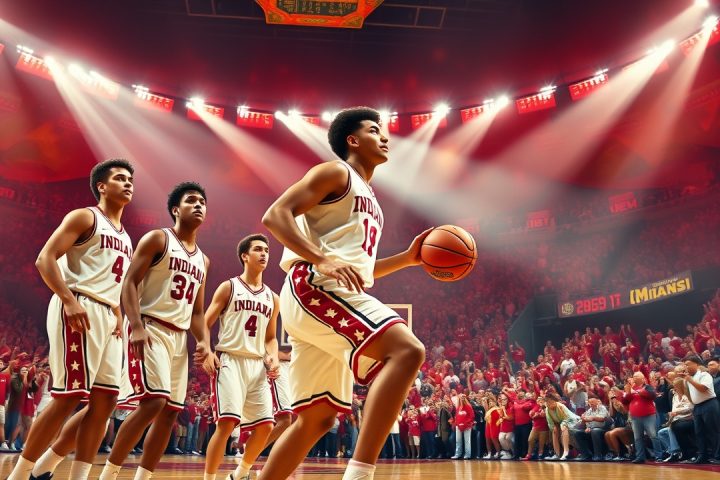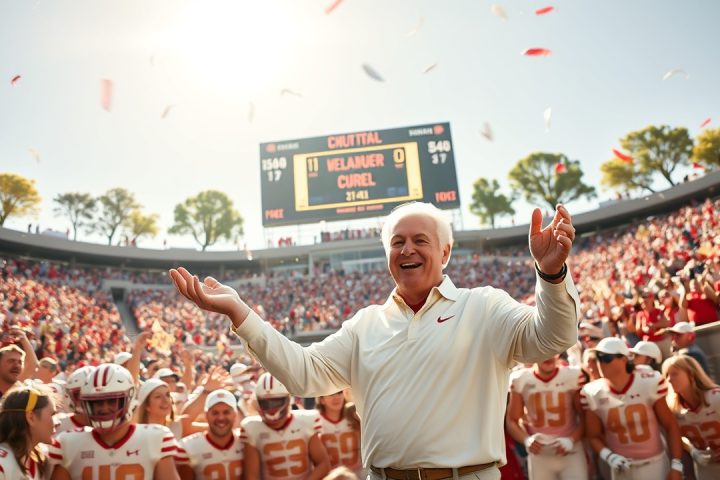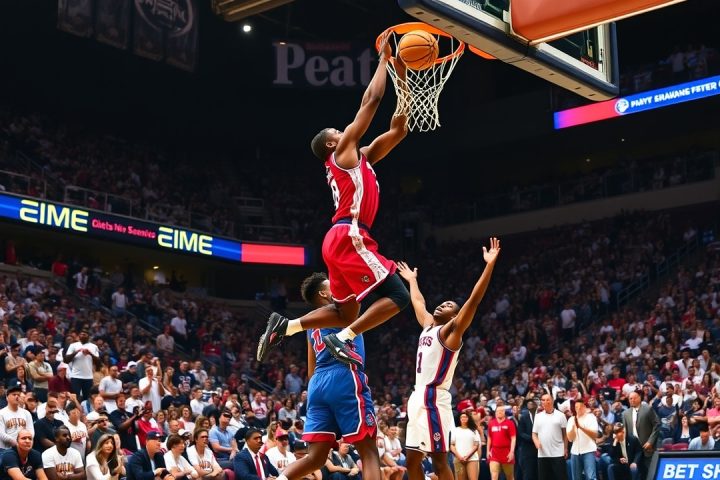Dwight Howard: A Hall of Fame Career
Dwight Howard is set to become a Hall of Famer this weekend, entering the Naismith Memorial Basketball Hall of Fame alongside seven other renowned basketball figures. With an impressive career that includes eight All-Star selections, eight All-NBA honors, and three Defensive Player of the Year awards, Howard is certainly a first-ballot inductee.
Overlooked Greatness
However, he has often been overlooked in discussions regarding the league’s best players, particularly when compared to his contemporaries. By 2021, Howard was one of only 26 NBA players to achieve five or more first-team All-NBA selections; however, unlike the others, he was missing from the 75th Anniversary Team, a choice that has drawn scrutiny. The other players in this exclusive club who also missed that honor were all from before the three-point shooting era, making Howard unique among modern players of his renown.
Flaws in the Game
Despite his accolades, Howard’s game had notable flaws. His free throw percentage hovered around an abysmal 57%, a statistic reminiscent of legendary centers like Wilt Chamberlain and Shaquille O’Neal. Additionally, Howard often found himself in situations where his assist-to-turnover ratio was troubling, indicating inefficiency in scoring, especially in the post. Since the 2013-14 season, data has shown him as one of the lowest-scoring players in terms of points per play on post-ups.
Comparative Career Trajectories
The differences in their career paths make for an interesting comparison between Howard and Robert Parish—a center known for his longevity and consistent production. While both players have similar total statistics and Wins Above Replacement (WAR), their trajectories diverged significantly; Howard peaked early in his career but experienced a rapid decline, while Parish maintained effectiveness well into his 30s. In fact, over the first eight seasons, Howard accumulated a WAR of 78.6, compared to Parish’s 54.3, but in the later stages, Howard’s contributions dipped dramatically at 27 WAR while Parish continued to thrive with 55.4 WAR.
Legacy and Impact
As a result of his earlier dominance, Howard made eight All-NBA teams, while Parish only earned two. The latter’s enduring performance contributed to him making the 75th Anniversary Team, something Howard was unable to achieve. After making his last All-Star appearance at the age of 28, Howard’s career transitioned into a less illustrious phase where he changed teams frequently. During his final six seasons, he played for several franchises, often going unrecognized before finding a more favorable role back in Los Angeles. There, he played a vital part in the Lakers’ 2020 championship run alongside JaVale McGee, providing a solid presence in the paint that allowed star Anthony Davis to shine as a power forward.
Despite a steady decline, Howard still ranks among the elite in NBA history, being one of only 19 players to achieve five consecutive first-team All-NBA nods in an era featuring exceptional talents. While some argue that the quality of competition at center during his prime was lacking, Howard’s finishes in the MVP race during those years reflect his status as a legitimate top-five player.
Revolutionizing the Center Position
In addition to his accolades, Howard played a crucial role in popularizing a modern basketball style. Under coach Stan Van Gundy with the Orlando Magic, he led a formidable defense while the team consistently ranked top in the league for three-point attempts. Howard’s exceptional bulk and athleticism allowed him to lead the league in dunks for six consecutive seasons, helping redefine the role of the center in NBA offenses. His peak was spotlighted during the 2009 Eastern Conference finals, where he led the underdog Magic against the powerhouse Cleveland Cavaliers, producing historic playoff performances that further cemented his legacy among the league’s greats.
Challenges and Triumphs
Howard’s storied career included key contributions beyond gameplay; as a member of the gold medal-winning 2008 U.S. Olympic team, he also reinvigorated the All-Star Weekend dunk contest. However, his career took a turbulent turn after 2012 when he left Orlando, leading to a series of trades and injuries, including a back surgery that would change his trajectory in the league. Overall, Howard exemplifies a player whose career can be likened to a rocket—intense and brilliant during its peak, but challenging in the follow-up years, showcasing the duality of talent and longevity in the world of professional basketball.




